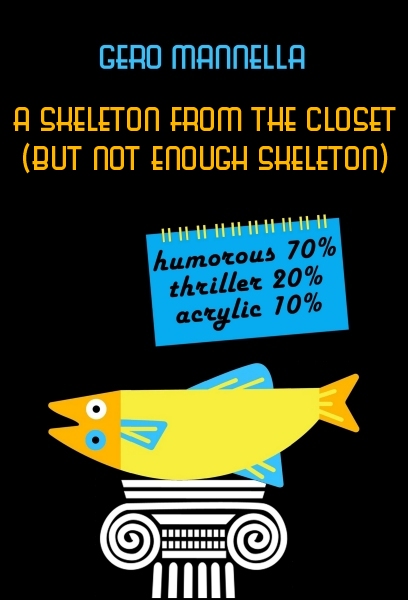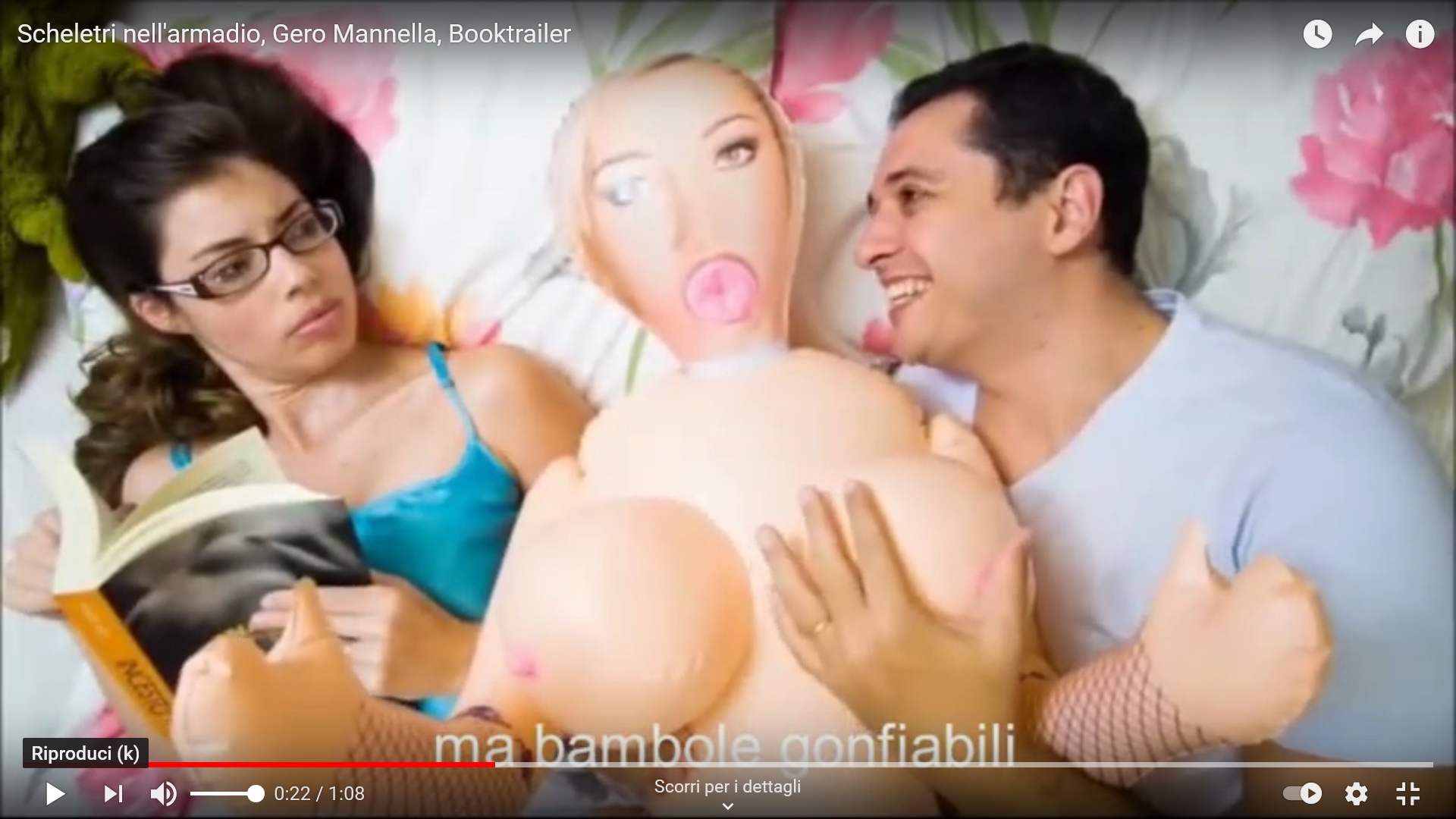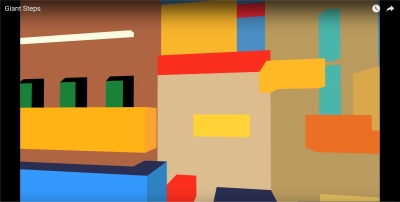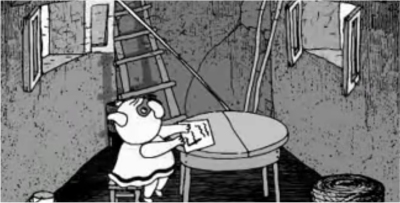Jessica and her friends contemplate the two bodies in the bedroom.
A glance at her sleeping husband, and Daria can't refrain from the trivial question.
“Are you sure you shouldn’t tell him?”
“Daria, are you joking? Do you think telling Horace would bring him back to life?” she hisses resolutely with self-preservation in mind.
Valerio supports her.
“Shall we stop asking stupid questions? We’re here to help her, aren’t we?”
Daria stares at him with a hostile look.
“You’re suggesting to wake Horace up and tell him out of the blue: look, I have a lover, but he’s occasional, don’t worry. The problem is that he died. The other man passed out, I don’t know who he is. But don’t worry: he’s just a thief.
Can you tell things like that to someone just as he wakes?”
Women shake their heads.
“... or should we bring him coffee first?”
“I have only decaf” says Jessica in a peak of frustration.
[...]
After an invisible Italian publishing experience, despite enthusiastic official reviews, the story is translated into English. It was originally a script for a slapstick comedy: it could become a movie, if it deserves it.
Description
Jessica is attractive, exuberant, nymphomaniac. While she is having sex with a cool guy just known, her husband Horace comes home.
And so far, nothing original: an ordinary matter of hormones.
She dresses quickly and runs to meet Horace to avoid the worst, convincing him to take a walk.
The problem is that her lover in panic, instead of escaping, hides in the closet, gets stuck for the faulty lock and dies choked.
The same night, while he’s robbing her apartment, Bozo opens the closet door and the naked corpse collapses on him. He faints, Jessica is awakened by the noise and is shocked.
She has no choice: she must make the corpse and the fainted thief disappear, before Horace wakes up.
Too bad she asks the wrong people for help.
Reviews
"The authors and characters that are often quoted when recounting Gero Mannella's work are prestigious, authentic icons of comedy and of the wildest humor.
The ambition of a narration conducted with such a paradoxical and creative formulation is in all evidence that of re-proposing the canons of Achille Campanile
- one of the authors most cited by Mannella's admirers - updated however to our days. [...]
Moreover, a film inspired by his novel is not a bad idea at all.
A feature film that takes its cues from Mannella's skeletons and closets, as well as from the noble fathers of humor and surrealism, might appeal to us."
[Luca Menichetti on Lankenauta]
Full italian review

"The book winds through gags, misunderstandings, puns, and grotesque notes from the author.
Among bodies torn to pieces, works of art that are better left alone, and heads kept in the living room in a jar full of formaldehyde, more by chance than by wit,
Inspector Brumby will unravel the skein.
Mannella traces the style of Mark Leyner mentioned in the introduction, and it is clear from the beginning that we will find ourselves
in front of hilarious nonsense." [Chili di Libri]
Full italian review

"Transatlantic publishers insist on publishing the known without checking out the wonders of the unknown. Gero Mannella for example.
He is a writer of histrionic irony, of deflagrating comic fury. [...]
It is enough to look at his personal website with its explicit logo:
"Stories that make you shit (center-north) or crap (south-islands)", to understand that we are dealing with an alchemist of languages. [...]
In this country of the serious, Mannella's genius macerates in the editorial undergrowth and is a virus in the recesses of the web.
Absurd multiplied with homeland idiocy."[Linkiesta]
Full italian review

"It's always the happy, very happy hour of works like Mannella's, which overturn every scheme and make us understand all the arcane power of fiction, explaining the alchemy of what we don't choose, because it does, it takes us. Let this novel choose you: you won't come out alive, but something more." [C. Leonardi on Kultural] Link lost

"Because this novel has a tone that - despite being exceptionally visual - is instead deeply literary and decidedly musical. The narrative style is its strength [...] every sentence is warmly, artfully chiseled for the sheer pleasure of reading [...] Who cares how it ends? I would reread the third chapter three times in a row just for the pleasure of seeing how this box for humans is described, for the sudden incursions of the narrative voice that desecrates the characters it describes, comments, plays with words and swears, and mutters and observes and redraws the shapes of the sterile humans that populate this meaningless planet." [Luca Martello on Lankenauta] Full italian review
interview
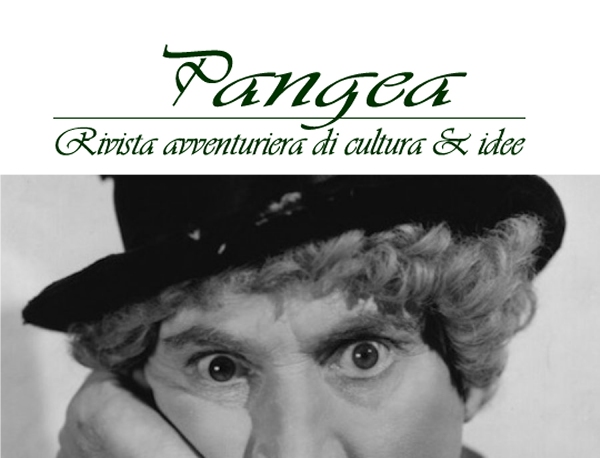

















 a skeleton from the closet
a skeleton from the closet 
